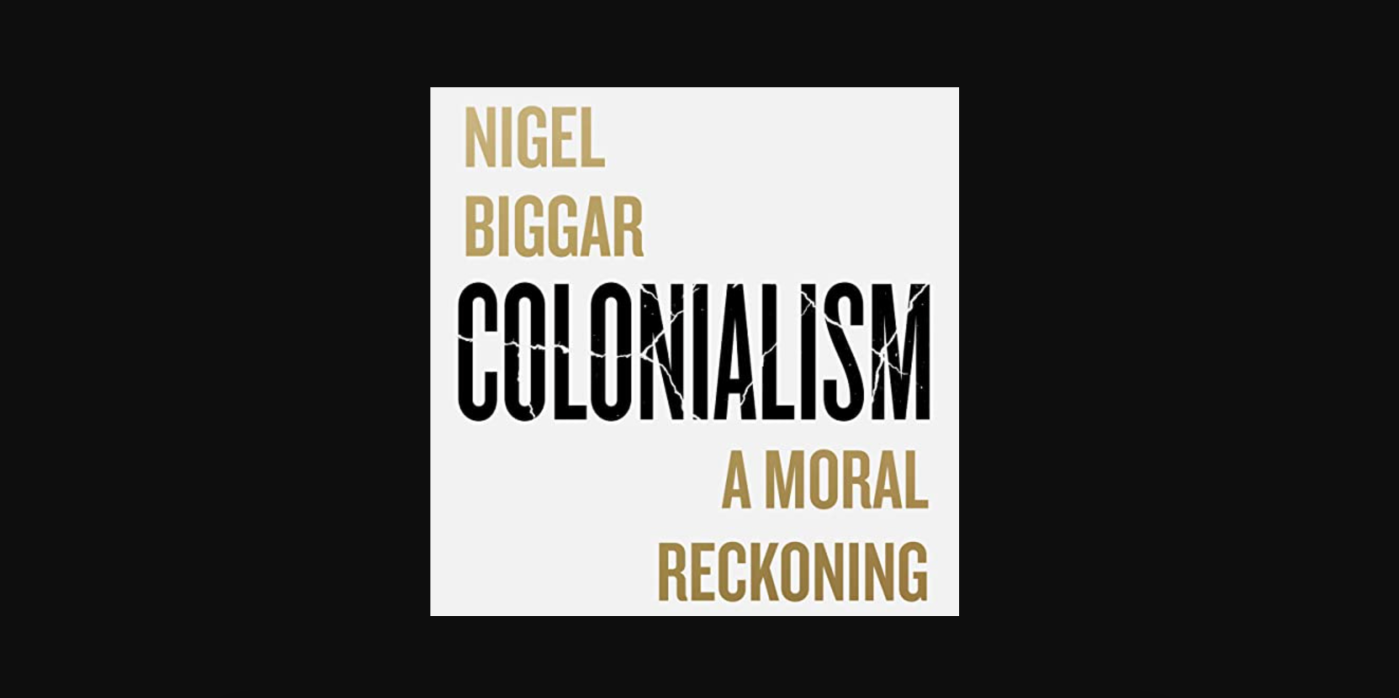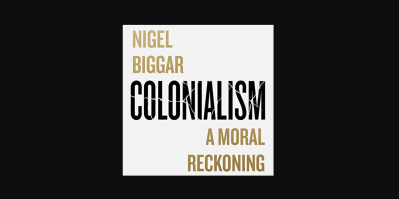Anyone who would undertake to rehabilitate colonialism in our day and age would seem to be tackling an utterly quixotic task, as well as practically begging to be “canceled” in polite intellectual society. Yet that is what Nigel Biggar—an eminent scholar of moral theology at Oxford University and author of books on human rights and just war theory—attempts in Colonialism: A Moral Reckoning. Perhaps “rehabilitation” is too strong a word, since Biggar by no means ignores or excuses the evils of colonialism. As his subtitle suggests, however, he aims at a “reckoning.” Biggar offers a sober assessment of the British Empire: not only of its injustices, but also of the morally valuable achievements that should be credited to its account.
Empire, Biggar reminds us, has been a historically common form of government. It has appeared around the globe, in widely diverse cultural and political contexts: from the Persians and Athenians, to the Chinese and Romans, to the Zulus and Incas, to the Ottomans and Habsburgs. It can involve the subjugation of alien peoples but also provide a framework within which different ethnic, linguistic, and religious groups live in relative peace and harmony. If it sometimes relies on conquest and enslavement, it can also promote peace and commerce. While some colonized peoples have struggled to break free from their colonial masters, others have welcomed protection from neighboring powers that might otherwise oppress them.
An effort so at odds with the zeitgeist demands rigor and thoroughness from its author. Biggar delivers. His assessment of British imperialism addresses a number of topics: its relation to slavery (and also the movement to end slavery); the extent to which it was or was not penetrated by racism; accusations that it involved genocide; charges that it economically exploited its subject peoples; whether it governed in the interests of its subjects or suppressed their rights to self-government; and whether it was characterized by pervasive violence. Biggar takes up the criticisms most commonly leveled at the British Empire, attempting to determine where those criticisms are justified and where they are not.
The book’s longest chapter examines, often in considerable detail, six of the most famous incidents that are often said to illustrate the British Empire’s essentially violent nature. One is the Indian Mutiny of 1857. In this instance, the East India Company faced a mutiny that began over grievances among professional soldiers and then spread into a wider rebellion, inspired by unemployment, fears that Christianity might be imposed, and perceptions of racial arrogance among the British. Yet the rebellion was not universal, and it divided the Indians themselves. It “was as much a civil war as a war against the British. ... Supporters of the rebellion were mainly Hindus, sometimes Muslims; Sikhs and Pathans generally remained loyal to the company.” The rebels committed two “indiscriminate massacres” of British men, women, and children. When British reinforcements arrived, their fierce desire for revenge was initially held in check by their commander; later, however, his replacement “let loose the dogs of vengeance” with “merciless, indiscriminate reprisals, with villages being burned to the ground.” Drawing upon the language of just war theory, Biggar condemns this as “the disproportionate and indiscriminate use of violence.” At the same time, he argues that the incident does not prove that the empire was essentially violent at its heart, for the government promptly repudiated the violence, which was widely criticized and led to “major changes in government policy.” Queen Victoria herself transferred governance in India from the East India Corporation to a minister of the crown.
This example demonstrates Biggar’s careful approach, which is highly attentive to detail and to the context of moral choice. He insists that we attend to the choices people actually have available to them, rather than the ones that subsequent generations might wish they could have made. He challenges commonplace assumptions: that democracy is the only just form of government, that colonizers must have always had bad motives, that the colonized must have always resented their colonial governors. He insists that we recognize the complexity of political choice, which is often an effort to find the least bad solution or to discern the most adequate trade-off among competing goods. In many respects he offers a master class in moral reasoning, and honest readers will often find themselves drawn to accept conclusions they initially expected to resist.
Biggar’s discussion does, however, have one important blind spot. It pays too little attention to the moral significance of popular self-determination. I would have expected this to be the crux on which an evaluation of colonialism would turn. Yet the word “self-determination” does not even appear in the book’s index. That is not to say that Biggar ignores the issue entirely. His seventh chapter (“Government, Legitimacy, and Nationalism”) takes up the topic, though less directly than I would have liked. Here Biggar makes some valuable points: that a test of government’s justice is whether it pursues the public good, which non-democratic governments can do and democratic ones can fail to do; that colonial governments, which inevitably sought to rule a large population with a comparatively small number of colonial officials, necessarily rested upon the at least tacit consent of many of those over whom they governed; and that the nationalist reactions that ultimately brought down colonial governments frequently pitted one part of a region’s population against another and paved the way for new forms of violence, oppression, and civil war. As Biggar rightly notes, nationalism is never its own justification, and movements claiming to speak on behalf of the people have often suppressed opponents whose reading of the popular will differed from their own.
These are important truths. But they do not fully counter the moral weight that self-determination has for us. To sense this, one need only imagine explaining to a group of people that they are really not suited to governing themselves and should instead be governed by others for their own good. Such a claim might well be true in certain instances, but it is hard to imagine it persuading those to whom it is addressed, at least not in our contemporary world. Biggar recognizes this, writing—with evident regret—that “once nationalism had taken hold among the natives, it could not long be resisted.”
But the ideal of self-determination is not merely the unfortunate product of misguided late-modern nationalist sentiment. It expresses our belief that while representation is not a sufficient condition for a government’s justice, it is a necessary one. I use the idea of “representation” (another word missing from Biggar’s index) in a broad sense, to indicate not the presence of electoral institutions but rather the need for a government to represent the values and traditions of the people in whose name it rules. In this sense, even non-democratic governments can be representative.
Biggar, of course, claims that colonial governments often were. I imagine that he is at least partially right about this—more so, certainly, than his opponents might like to concede. But surely there is always also something distorting about the colonial relationship, something that prevents its being genuinely representative. Partly this is because of cultural and linguistic differences. Even with the best of intentions, outsiders will often fail fully to understand a given cultural practice or value, and will often misinterpret what they are seeing in subtle but non-trivial ways. But partly it is also because of the element of power involved in rule. Even with the best of intentions, power distorts relationships. It is difficult truly to appreciate and understand, sometimes even to notice, those who are subordinate to us. Aristotle long ago observed that genuine friendship is possible only among those who are in some sense equal. A similar disconnect, it seems to me, must almost always exist between colonizer and colonized.
Be that as it may, Nigel Biggar has written a timely and important book that in many ways pokes us where we need poking. His detailed case studies are the right antidote for an age that too often lacks historical sensitivity. His insistence that moral reasoning eschew abstraction and confront instead the frustrating complexity of lived experience is a welcome rebuke to ideological oversimplification. And his effort to judge fairly the global legacy of a country like Britain, recognizing the good it has done as well as the bad, is vital at a moment when Western liberal democracies, confronting new challenges, need the courage and self-confidence to remember that they can indeed be a force for good in the world.






Please note that we at The Dispatch hold ourselves, our work, and our commenters to a higher standard than other places on the internet. We welcome comments that foster genuine debate or discussion—including comments critical of us or our work—but responses that include ad hominem attacks on fellow Dispatch members or are intended to stoke fear and anger may be moderated.
With your membership, you only have the ability to comment on The Morning Dispatch articles. Consider upgrading to join the conversation everywhere.